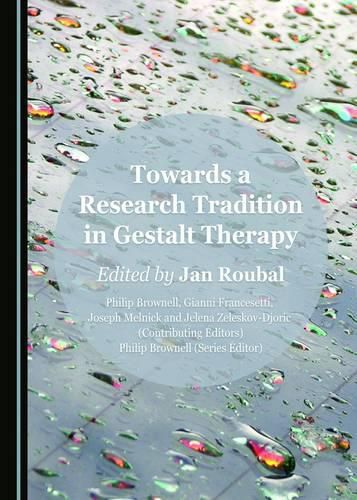Readings Newsletter
Become a Readings Member to make your shopping experience even easier.
Sign in or sign up for free!
You’re not far away from qualifying for FREE standard shipping within Australia
You’ve qualified for FREE standard shipping within Australia
The cart is loading…






Gestalt therapy is well-grounded in its daily practice, but is a field which is still in the process of developing a research tradition to support this practice. Gestalt practitioner researchers devote themselves to the generation of interest in the field, the enlargement of capacities and expertise, and the sharing of research projects and their findings. The larger Gestalt community realises that such research has begun to take place, but it requires more information and to be brought into the conversation through a book that speaks of philosophy and method and actually shares some of the research that emerges. This volume fills this lacuna, collecting for the first time the theoretical grounds for research in Gestalt therapy, and introduces useful research methods and presents actual research projects to provide inspiration to Gestalt practitioner researchers. The book will be helpful not only to Gestalt therapists interested in research, but also to students of Gestalt therapy involved in training, as it will serve to bolster their own academic performance. It will also be of interest to the larger field of psychotherapy research, in demonstrating how a clinical school based on principles such as existential dialogue, phenomenology and field theory is responding to the need for evidence-based practice, and is keeping pace with the needs of a twenty-first century professional community.
$9.00 standard shipping within Australia
FREE standard shipping within Australia for orders over $100.00
Express & International shipping calculated at checkout
Gestalt therapy is well-grounded in its daily practice, but is a field which is still in the process of developing a research tradition to support this practice. Gestalt practitioner researchers devote themselves to the generation of interest in the field, the enlargement of capacities and expertise, and the sharing of research projects and their findings. The larger Gestalt community realises that such research has begun to take place, but it requires more information and to be brought into the conversation through a book that speaks of philosophy and method and actually shares some of the research that emerges. This volume fills this lacuna, collecting for the first time the theoretical grounds for research in Gestalt therapy, and introduces useful research methods and presents actual research projects to provide inspiration to Gestalt practitioner researchers. The book will be helpful not only to Gestalt therapists interested in research, but also to students of Gestalt therapy involved in training, as it will serve to bolster their own academic performance. It will also be of interest to the larger field of psychotherapy research, in demonstrating how a clinical school based on principles such as existential dialogue, phenomenology and field theory is responding to the need for evidence-based practice, and is keeping pace with the needs of a twenty-first century professional community.